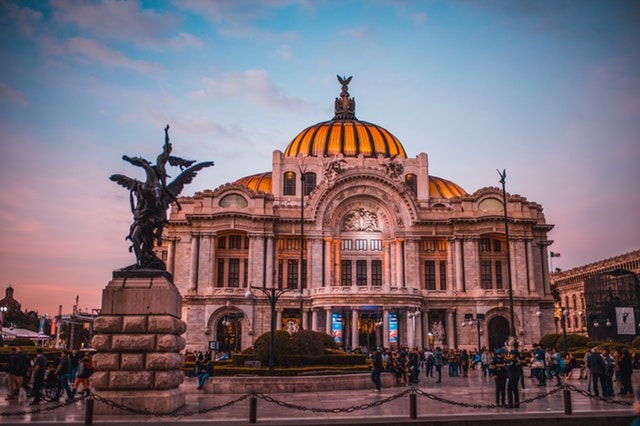The first cannabis businesses in Mexico could open their doors at the beginning of 2021. In addition to decriminalizing the recreational consumption of cannabis, the bill regulates the payment of taxes from the sale, marketing, distribution and supply of psychoactive cannabis. Additionally, cannabis products used in medical or industrial fields can be imported and exported.
Government sets out rules for cannabis businesses in Mexico


The first cannabis businesses in Mexico could open in 2021.
According to the Law for the Regulation of Cannabis, individuals or companies eligible can request a license granted by the Mexican Federal Government.
The Senate opens the doors for cannabis businesses in Mexico
In addition to decriminalizing the recreational consumption of cannabis, the bill regulates the payment of taxes from the sale, marketing, distribution and supply of psychoactive cannabis.
Additionally, cannabis products used in medical or industrial fields can be imported and exported. Businesses for the consumption of cannabis will also be allowed, although they will not be able to function as establishments open to the public.
By decriminalizing cannabis, Mexico is trying to fight illegal drug trafficking. The new law takes into account the right adults have to consume cannabis for recreational purposes.
The government will also benefit from the fiscal effects of legal cannabis sales in the country.
Exclusive licenses for cannabis businesses in Mexico
The bill foresees that there will be four authorization types that must be obtained if you want to participate in the legal cannabis market.
The licenses, which are mutually exclusive, will be for cultivation, transformation, sale, and the export or import of cannabis. All these licenses will include transport and storage.
However, only “one type of licence per person” can be granted. This is so that there is no vertical integration of the cannabis industry.
As expressed in articles 35, 36 and 37 of the law, a copy of which is in the hands of the High Level, whoever cultivates the plant cannot sell it directly. Instead, the cannabis plant has to be sold to a person or company that has a sales license that is authorized to deal with the public.
The legal sale of cannabis in Mexico
The law concerning the regulation of cannabis tries to create a regulated market for the sale of individual cannabis consumption.


People who sow and harvest cannabis for recreational or leisure purposes should legally purchase cannabis seeds from officially licensed sources.
The agency that will regulate and oversee these activities will be the Mexican Cannabis Institute, a decentralized agency of the Ministry of the Interior. They will be in charge of granting licenses to commercialize marijuana.
However, the legal sale of psychotropics will have some restrictions. For example, edible and drinkable products containing cannabis may not be sold.
Additionally, cannabis may not be mixed with other addictive substances, such as alcohol or tobacco and no licensed person or company may market products that exceed the levels of THC (tetrahydrocannabinol) established by the authority. THC is the psychoactive component of the cannabis plant.
The North American market leads the way
Both Canada and the U.S. have legalized cannabis in many jurisdictions and public attitudes towards the drug are increasingly positive. The passage of the Farm Bill last year has also spawned the hugely successful CBD industry.
Companies like Veritas Farms Inc (OTC: VFRM) have capitalized on consumer interest in the CBD. The company has significantly increased revenue year on year in Q2 2019 by more than 500% to an impressive $2,971,345.
The company has also significantly expanded its brick and mortar presence in America and cultivated a distribution network that extends overseas into Europe.
Most recently Veritas secured a partnership with Winn-Dixie and BI-LO supermarkets to supply CBD to 152 South Eastern stores.
Winn-Dixie and BI-LO have a notoriously difficult due diligence process and Veritas has leveraged their commitment to quality and transparency in order to secure a key contract for the company.
—
(Featured image by Jezael Melgoza via Unsplash)
First published in altonivel, a third-party contributor translated and adapted the article from the original. In case of discrepancy, the original will prevail.
Although we made reasonable efforts to provide accurate translations, some parts may be incorrect. Hemp.im assumes no responsibility for errors, omissions or ambiguities in the translations provided on this website. Any person or entity relying on translated content does so at their own risk. Hemp.im is not responsible for losses caused by such reliance on the accuracy or reliability of translated information. If you wish to report an error or inaccuracy in the translation, we encourage you to contact us.



Comments are closed for this post.